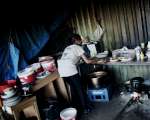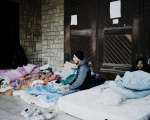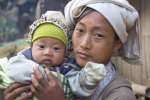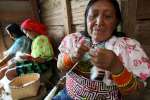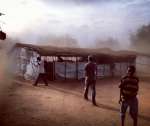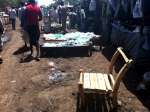UNHCR deeply concerned about abduction of asylum-seekers in eastern Sudan
Press Releases, 5 June 2015
UNHCR is concerned to have learned of an abduction of 14 Eritrean asylum-seekers by unknown armed elements in eastern Sudan on Thursday 4 June 2015.
The incident happened when an armed group in a pickup truck opened fire on a convoy organized by the Sudanese Commissioner for Refugees (COR), which was transporting 49 Eritrean asylum-seekers from Wad Sharifey reception centre near Kassala to Shagarab refugee camp.
Fourteen asylum-seekers were kidnapped: seven unaccompanied children (six boys and one girl), five women and two men. In addition, six asylum-seekers suffered from minor injuries when they jumped from the truck in an attempt to escape. UNHCR is providing support to the survivors, who have been moved to in Shagarab camp and is in contact with the Sudanese authorities, who are investigating the case.
UNHCR welcomes this investigation and has asked the Government that no effort be spared in apprehending those responsible and bringing them to account. UNHCR urges that all movements of asylum-seekers be systematically accompanied by a security escort.
Prior to this incident, the Government of Sudan and UNHCR were seeing a reduction in kidnappings and trafficking in the east as a result of ongoing cooperation between UNHCR and the Government to fight this. In the past few days, the Government reaffirmed its commitment to tackling this phenomenon by endorsing the 2015-2017 Strategy to Address Human Trafficking, Kidnappings and Smuggling of Persons in Sudan.
For more information on this topic, please contact:
- In Khartoum: Carol Sparks, UNHCR, Tel +249 183 471 101, Mobile +249 912 534 152, sparks@unhcr.org
- In Geneva: Karin de Gruijl on Mobile +41 79 255 92 13
Cold, Uncomfortable and Hungry in Calais
For years, migrants and asylum-seekers have flocked to the northern French port of Calais in hopes of crossing the short stretch of sea to find work and a better life in England. This hope drives many to endure squalid, miserable conditions in makeshift camps, lack of food and freezing temperatures. Some stay for months waiting for an opportunity to stow away on a vehicle making the ferry crossing.
Many of the town's temporary inhabitants are fleeing persecution or conflict in countries such as Afghanistan, Eritrea, Iraq, Sudan and Syria. And although these people are entitled to seek asylum in France, the country's lack of accommodation, administrative hurdles and language barrier, compel many to travel on to England where many already have family waiting.
With the arrival of winter, the crisis in Calais intensifies. To help address the problem, French authorities have opened a day centre as well as housing facilities for women and children. UNHCR is concerned with respect to the situation of male migrants who will remain without shelter solutions. Photographer Julien Pebrel recently went to Calais to document their lives in dire sites such as the Vandamme squat and next to the Tioxide factory.
Cold, Uncomfortable and Hungry in Calais
International Women's Day 2013
Gender equality remains a distant goal for many women and girls around the world, particularly those who are forcibly displaced or stateless. Multiple forms of discrimination hamper their enjoyment of basic rights: sexual and gender-based violence persists in brutal forms, girls and women struggle to access education and livelihoods opportunities, and women's voices are often powerless to influence decisions that affect their lives. Displaced women often end up alone, or as single parents, battling to make ends meet. Girls who become separated or lose their families during conflict are especially vulnerable to abuse.
On International Women's Day, UNHCR reaffirms its commitment to fight for women's empowerment and gender equality. In all regions of the world we are working to support refugee women's participation and leadership in camp committees and community structures, so they can assume greater control over their lives. We have also intensified our efforts to prevent and respond to sexual and gender-based violence, with a focus on emergencies, including by improving access to justice for survivors. Significantly, we are increasingly working with men and boys, in addition to women and girls, to bring an end to dangerous cycles of violence and promote gender equality.
These photographs pay tribute to forcibly displaced women and girls around the world. They include images of women and girls from some of today's major displacement crises, including Syria, Democratic Republic of the Congo, Mali and Sudan.
International Women's Day 2013
The resilience and dignity of refugees in South Sudan
Since September 2011, more than 100,000 Sudanese refugees have fled bombing raids and fighting in their home country and taken refuge in South Sudan's Upper Nile state. Hosted in four refugee camps in Maban County, they face tough living conditions that have worsened during the rainy season. Staff from the UN refugee agency share some of their hardship in one of the most remote and difficult to access areas of South Sudan.
Grateful for the life-saving assistance they receive from the UN refugee agency and its humanitarian partners, the refugees are an example of the extraordinary resilience humans are capable of. The following photographs, taken by UNHCR staff, show the conditions in which they live during a daily battle to maintain their dignity and hope.
The resilience and dignity of refugees in South Sudan


South Sudan: Helping the Most Vulnerable
UNHCR comes to the assistance of older, disabled and sickly Sudanese refugees arriving in Yusuf Batil Camp.
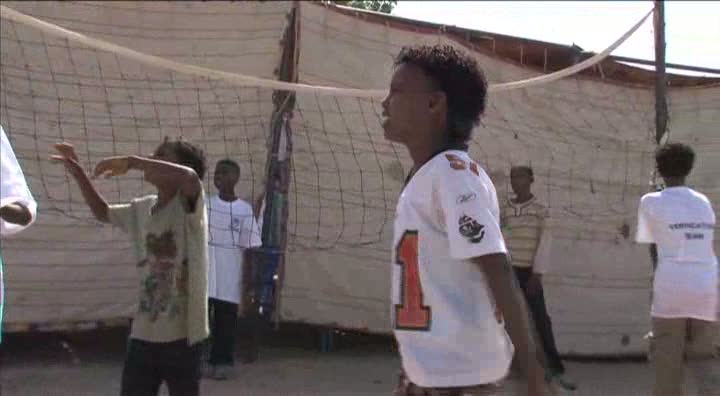

Sudan: A Perilous Route
Kassala camp in eastern Sudan provides shelter to thousands of refugees from Eritrea. Many of them pass through the hands of ruthless and dangerous smugglers.


Sudan: Heading for a New Home
UNHCR is offering to help move hundreds of people from Sudan to newly independent South Sudan, where they will build new lives. Almost 250 families with ties to the south are waiting for a ride.
 |
|  |
|  |
| 











